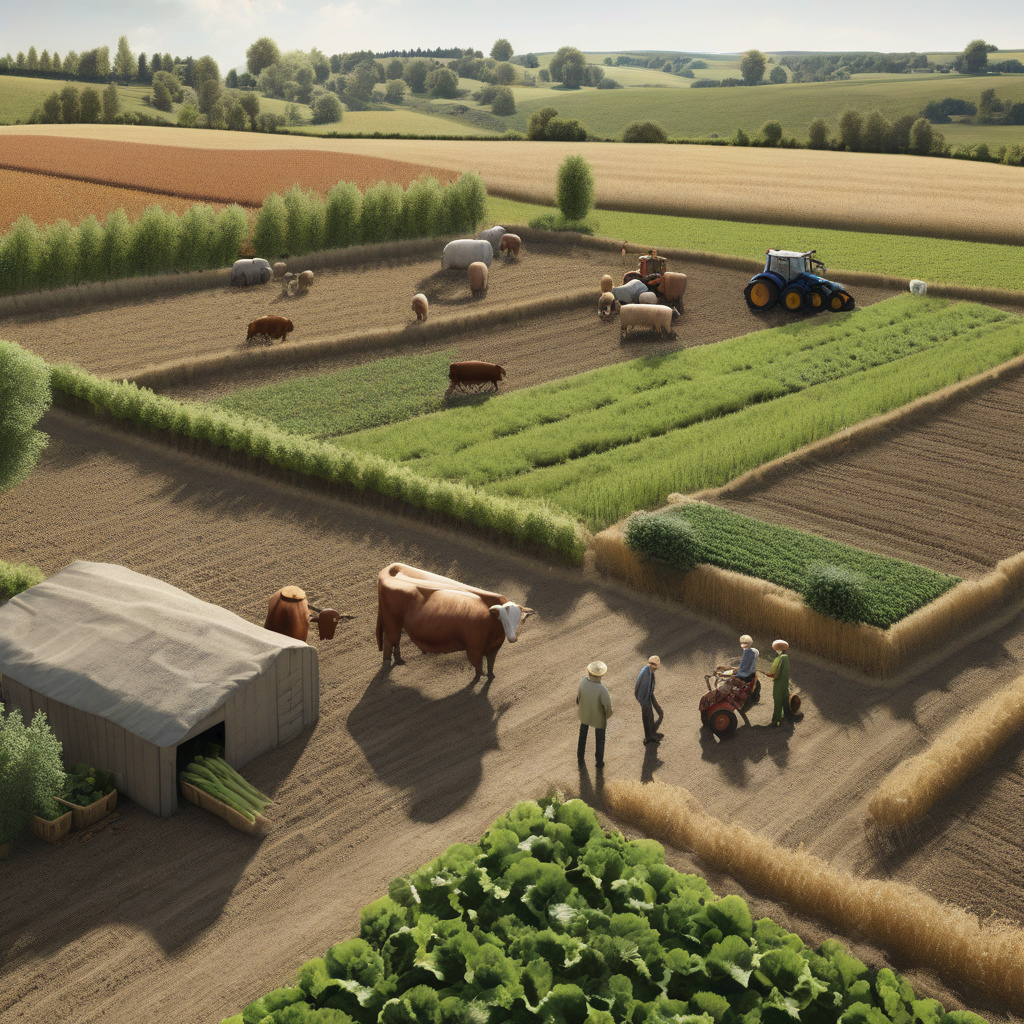How a ‘One Health’ Strategy Can Secure Sustainable European Farming
In the realm of European agriculture, the concept of sustainability has taken center stage in recent years. With the growing awareness of environmental issues, animal welfare concerns, and the economic challenges faced by farmers, there is a pressing need to adopt a holistic approach that addresses these interconnected issues. The EIT Food report has put forth a compelling strategy known as “One Health,” which aims to integrate environmental sustainability, animal welfare, and farmer profitability for a more secure and sustainable future in European farming.
The “One Health” approach recognizes the delicate balance between the health of the environment, animals, and humans. By considering these elements as interconnected and interdependent, the strategy seeks to promote practices that are not only beneficial for one aspect but for the entire ecosystem. This means that decisions and actions taken in one area will have ripple effects on the others, emphasizing the need for a cohesive and comprehensive strategy.
One of the key pillars of the “One Health” strategy is environmental sustainability. European farming has a significant impact on the environment, from greenhouse gas emissions to water usage and land degradation. By adopting sustainable practices such as regenerative agriculture, crop rotation, and reduced chemical inputs, farmers can minimize their environmental footprint and contribute to the health of the planet.
Another crucial aspect of the “One Health” approach is animal welfare. The well-being of farm animals is not only a moral imperative but also directly impacts the quality and safety of food products. By ensuring that animals are raised in humane conditions, provided with proper nutrition and healthcare, and given space to exhibit natural behaviors, farmers can improve the overall health of their livestock and the quality of the end products.
Furthermore, the “One Health” strategy recognizes the importance of farmer profitability in ensuring the sustainability of European agriculture. Sustainable practices and improved animal welfare can lead to cost savings, increased productivity, and access to premium markets that value ethical and environmentally friendly products. By investing in the well-being of farmers and providing them with the necessary support and resources, the agricultural sector can thrive and remain competitive in the long run.
The implementation of the “One Health” strategy requires collaboration and coordination among various stakeholders, including policymakers, farmers, researchers, and consumers. By working together towards a common goal of sustainable agriculture, these groups can drive positive change and shape the future of European farming for the better.
In conclusion, the “One Health” strategy presents a compelling vision for the future of European agriculture, one that prioritizes the well-being of the environment, animals, and farmers alike. By embracing this holistic approach and making concerted efforts to integrate sustainability, animal welfare, and profitability, the agricultural sector can secure a more sustainable and prosperous future for generations to come.
#OneHealth, #SustainableFarming, #EuropeanAgriculture, #EnvironmentalSustainability, #FarmersProfitability












